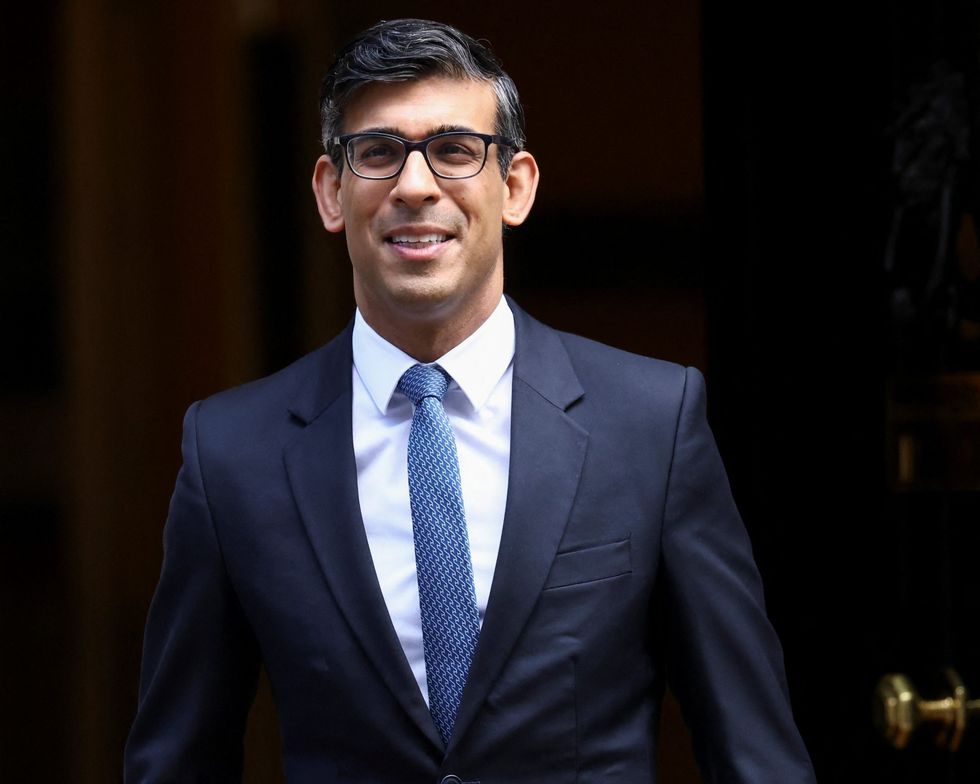THIS appears to be the age of rising Asian power. Certainly British Asians have never before had so much presence, more voice or more status in British public life.
The pace of change has been extraordinary. Prime Minister Rishi Sunak and Scottish First Minister Humza Yousaf were born in the 1980s into a country that had yet to see a single Asian MP in post-war Britain, until a solitary Asian MP was part of a black and Asian breakthrough quartet in 1987.
There were no Asian Conservative MPs when Rishi Sunak interned at party HQ as a young graduate in 2001. Humza Yousaf got his first break in politics as a parliamentary assistant to the first Asian MSP at Holyrood, Bashir Ahmed, elected in 2007.
When Barack Obama took office as US President, there had yet to be a single Asian Cabinet minister in British political history. Sayeeda Warsi was appointed party chair by David Cameron from the House of Lords in 2010, while Sajid Javid became the first ever Asian Secretary of State on becoming Culture Secretary as recently as 2014.
Ethnic diversity has become so familiar at the top table since then, that most people would be surprised to realise how recently this change occurred.
So what went right for British Asian representation? Broader social changes were combined with active leadership in politics itself. The strength of Asian and black British identification with being Britis, together with increased educational and professional success, provided key foundations. What has mattered most is more familiarity across ethnic groups, across generations, from contact in classrooms and workplaces to greater presence in public life. Without that, ethnic minorities could not represent white majority seats, or aspire to lead the country itself.

British Muslims have faced the most intense scrutiny in recent decades, yet this ultimately proved a catalyst for political integration. Sadiq Khan, recently elected in Tooting, found himself the only Muslim among London’s 74 MPs when the 7/7 bombings hit the capital. He had little choice about whether he would be seen as predominantly a “Muslim MP” having a crucial role to play in challenging both extreme Islamist and far-right claims about the incompatibility of Muslims with western democracy. There are twenty Muslim MPs in the Commons today, including ten women.
Though Sunak and Yousaf have got into leadership roles first, this rising ethnic minority presence is not an exclusively Asian phenomenon. The comparative numbers of Asian and black British politicians does seem broadly in line with the relative size of those demographic groups. Newer migrants and minority groups not from Commonwealth backgrounds may face more hurdles, with fewer immediate rights to participate nor, perhaps, as much confidence in their stake and ability to define British identity.
But how much difference does it make? It matters that ethnicity and faith are not a barrier at the very top. The late Nigel Lawson, for example, told Margaret Thatcher’s biographer Charles Moore that, even as her tax-cutting Chancellor, he always felt his Jewish heritage would prove a barrier to the top job.

A more diverse political class does somewhat broaden the talent pool. But there is no particular reason to anticipate better leadership from ethnic minority leaders. The key thing is that whether Humza Yousaf succeeds or struggles as First Minister would tell us nothing about the potential of Anas Sarwar, another Scottish Muslim of British Pakistani heritage.
Few people attributed the Truss-Kwarteng mini-budget fiasco to the gender or ethnicity of the Prime Minister or her Chancellor. Kwarteng’s failure has little bearing on the qualities of Rishi Sunak, Suella Braverman or David Lammy.
Ethnic diversity becomes a “new normal” when it spans political tribes – yet that can be a source of increasing conflict. One emerging populist argument dismisses increased diversity as mainly just more of the same. “While many of our institutions lecture us endlessly about diversity, when it comes to the class, education and values of people who work in them, they are really not diverse at all”, writes Professor Matthew Goodwin, promoting his new book Values, Vision and Virtue. The political institutions are mainly more open to those with strong educational and professional credentials – but the actual experience of more diversity in British politics has been to generate a more polarised public conversation about race, migration and identity.
Rather than the homogenous woke elite consensus which Goodwin seeks to critique, British politics in polarised time is characterised by a clash of elites. So British Asian politicians, like their white counterparts, can choose to be bridgers or culture warriors. Rishi Sunak’s government increasingly looks like an awkward coalition of the two approaches, pitching competence in economics and delivery with greater polarisation between the parties on immigration and identity.
British Asians north and south of the border will, like their fellow citizens, judge this new era of Asian power by the results that it delivers.




Rapid rise of British Asian influence in public life
Test for leaders is either to be bridgers or culture warriors, says expert